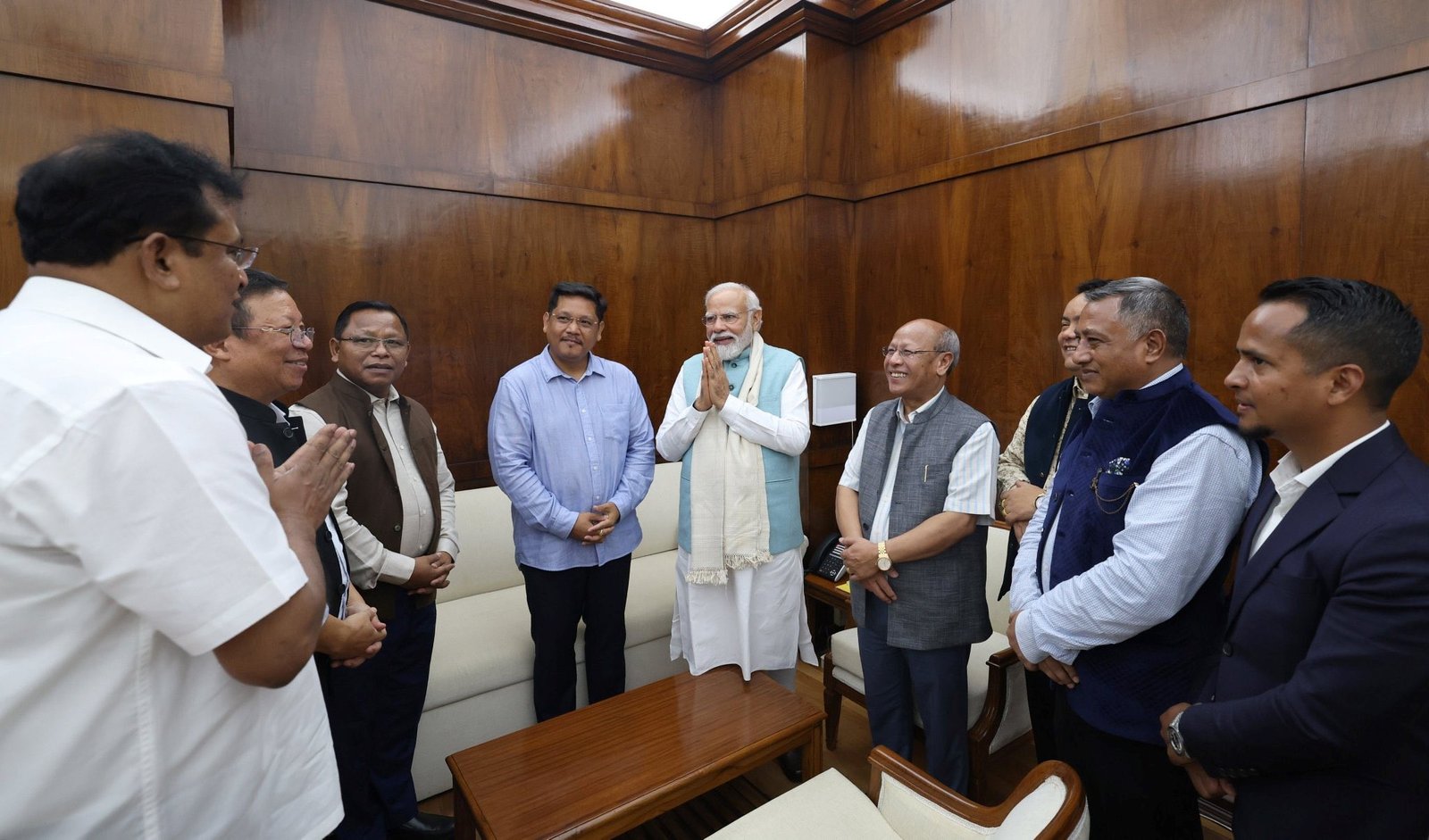A delegation led by Meghalaya Chief Minister Conrad K Sangma on Tuesday petitioned Prime Minister Narendra Modi to implement the Inner Line Permit (ILP) to safeguard the indigenous communities in the state, officials said here.
The delegation also sought recognition of the Khasi and Garo languages by their inclusion in the Eighth Schedule of the Constitution.
“The delegation submitted a memorandum to Prime Minister Modi, seeking his intervention in addressing major concerns of the state – Implementation of Inner Line Permit (ILP) and inclusion of the two languages spoken by the majority of the people,” an official told PTI.
The ILP is an official travel document issued by the Government of India to allow inward travel of an Indian citizen into a protected area for a limited period.
Of the eight states in the northeastern region, Arunachal Pradesh, Manipur, Mizoram and Nagaland are currently under the ILP regime.
Sangma apprised Modi of the inadequacy of the Citizenship (Amendment) Act, 2019, in safeguarding tribal interests despite its exclusion provision for tribal areas.
In 2019, the state sought the implementation of the ILP in Meghalaya under the Bengal Eastern Frontier Regulation 1873.
Sangma also emphasised the need for the inclusion of Khasi and Garo languages in the Eighth Schedule of the Constitution of India.
“A resolution to this effect was passed by the Meghalaya Assembly in November 2018, and the matter is currently pending with the Government of India,” the official said.
The delegation, of which Assembly Speaker Thomas Sangma is also a member, briefed the PM on the Assam-Meghalaya interstate border committees set up to end the boundary dispute once and for all.
“A joint survey by both states is underway to demarcate boundaries in these resolved areas,” the official said.
The chief minister also informed the Prime Minister that Meghalaya has 17 major tribes, with many sub-tribes, and sought expansion of seats in the three Autonomous District Councils to accommodate all stakeholders.
Conrad Sangma expressed apprehension that this disproportionate allocation might lead to inequality of opportunity among various tribes, potentially endangering the unity and fraternity they share.


